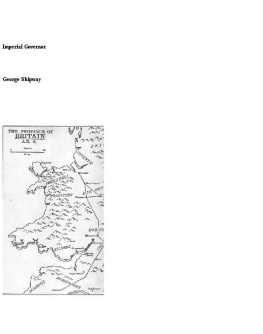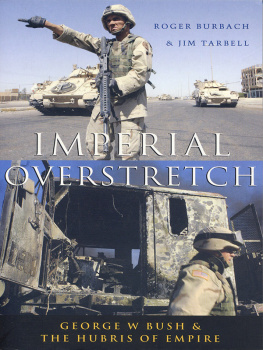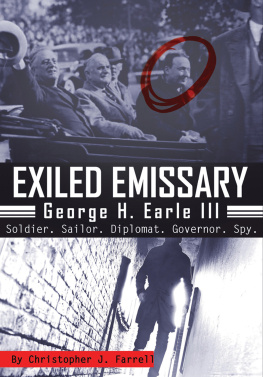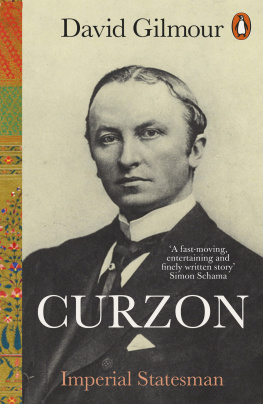George Shipway - Imperial Governor
Here you can read online George Shipway - Imperial Governor full text of the book (entire story) in english for free. Download pdf and epub, get meaning, cover and reviews about this ebook. year: 2002, publisher: Cassell, genre: Detective and thriller. Description of the work, (preface) as well as reviews are available. Best literature library LitArk.com created for fans of good reading and offers a wide selection of genres:
Romance novel
Science fiction
Adventure
Detective
Science
History
Home and family
Prose
Art
Politics
Computer
Non-fiction
Religion
Business
Children
Humor
Choose a favorite category and find really read worthwhile books. Enjoy immersion in the world of imagination, feel the emotions of the characters or learn something new for yourself, make an fascinating discovery.
- Book:Imperial Governor
- Author:
- Publisher:Cassell
- Genre:
- Year:2002
- Rating:3 / 5
- Favourites:Add to favourites
- Your mark:
- 60
- 1
- 2
- 3
- 4
- 5
Imperial Governor: summary, description and annotation
We offer to read an annotation, description, summary or preface (depends on what the author of the book "Imperial Governor" wrote himself). If you haven't found the necessary information about the book — write in the comments, we will try to find it.
Imperial Governor — read online for free the complete book (whole text) full work
Below is the text of the book, divided by pages. System saving the place of the last page read, allows you to conveniently read the book "Imperial Governor" online for free, without having to search again every time where you left off. Put a bookmark, and you can go to the page where you finished reading at any time.
Font size:
Interval:
Bookmark:
ImperialGovernor
GeorgeShipway
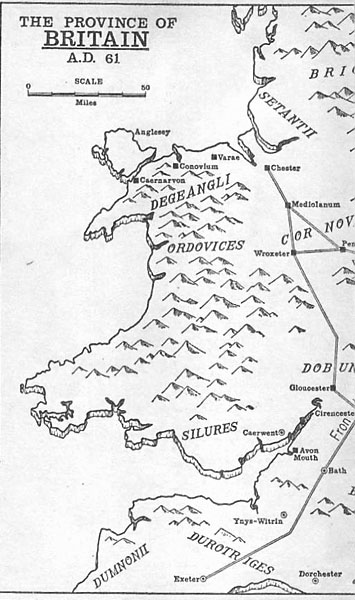
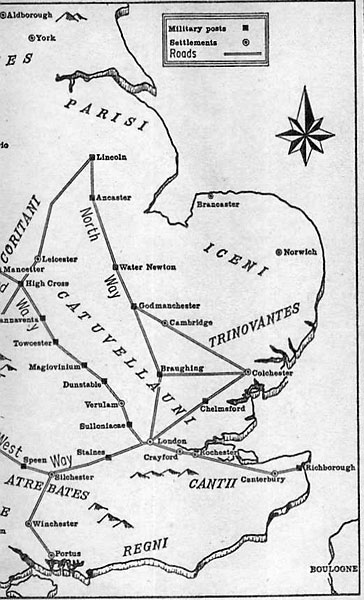
Prologue
a.d.
June68
Nerois dead.
Hehad been stark mad for years and was hated by every member of theSenatorial order, but I must remember him as my friend. He let melive when he could so easily have killed me. -
Now,from beneath the floor-tiles in my library, I can collect the papersI have written during the.last six years and, after amending asentence here and there and polishing a phrase or two, send them tothe copying-offices to be published. I risked my life to write thisbook while Nero still lived: had he known of its existence I wouldnot be alive today.
Hewas the last of the Julian line. Now I can tell the truth - the truthwhich yesterday was treason.
Whoam I?
Eightyears ago the name of Gaius Suetonius Paulinus was known to Romansfrom the Rhine to the Nile, from Euphrates to Severn, as one of thegreatest generals in the world. A year later, after leading his armyto the most resounding victory of modern times, he was recalled fromhis command and quietly relegated to private life.
Iam that man.
Neronever gave any reason; he seldom bothered with explanations.Rumour and speculation abounded; then the matter was forgotten andthe world at large saw only a man become famous and, perhaps, toopowerful, plucked from his eminence and discarded. Such men inthese times do not usually live very long. Yet Nero still showed mehis favour and was content merely to have me watched lest my reactionto public humiliation drove me into conspiracy.
Iam neither a hero nor overmuch afraid of death, yet I did not want todie. There were spies about me in those years, watching andreporting, listening for the incautious word that could be construedas treachery, looking for associations with disaffected men. I wasvery careful indeed. I stayed nearly all the time in
Romebut lived in retirement, attending the Senate's meetings only asoften as was necessary, voting exactly as Nero wished. It was a braveman who did otherwise. I entertained a little, inviting only thosewhose characters were exemplary in Nero's eyes. It was hard work fora man of my rank and family. My associates were financiers,swindlers, panders, harlots, male and female, eunuchs, freedmen and afew patricians who, like myself, were determined to survive. I sawNero frequently; he was always enable; in his presence I often forgothow mad and dangerous he had become.
Degradationhad its reward. Soon after the Fire the spies were called off; butcaution had become a habit and I took pains not to alter mybehaviour. The following year Nero gave me the Consulship forthe second time as a prize for good conduct and in recognition of thefact that he had finally decided I was harmless. At the end of myterm I went to him and begged leave to retire to my country estates,pleading the weight of my fifty-four years as an obstacle to a properperformance of public duties. He assented cheerfully.
Nowthere is no need to hide anything any more. I can sit here in peace,looking over my vineyards and olive-groves to the green hills beyond,and tell fully and frankly of those hectic months in Britain whichcrowned and finished my career as a soldier. Most of this bookconcerns war or preparations for war. I am a soldier first and last,soaked in military habit and tradition during all the long yearssince my first, far-away campaign as a young tribune in theMauretanian mountains. To politics, which undid me in the end, I gaveless attention than I ought. I was ambitious, they said, watching meclimb the Senatorial ladder. True enough; yet my ambition lay only inthe field and camp, in the pursuit of military glory. Others of myOrder, running the same race, turned their energies to law orpolitics, doing the minimum military service required, seeking, inthe end, the same reward. They wanted a Province, preferably apeaceful one. What kind of man is it that wants to govern a peaceful Province?
NowI can explain what really happened, and show the world how it wasthat the great Suetonius Paulinus, Senator, Consul and Governor ofBritain, descended to Suetonius Paulinus, Senator, twice Consul,lackey of a decadent Caesar, companion to his obscene companions; andfurther yet to Suetonius Paulinus, an old, broken soldier writingmemoirs of old, dim campaigns.
Hereit is, then: a tale of failure simply told, without embellishment ortricks of rhetoric Try, in your kindness, to understand mydifficulties and judge me leniently.
BOOKI
TheSowing
a.d.
October59 - February 61
CHAPTERONE
Assumethe honours which are justly due to your worth,
horace
Iwas not in Rome when the Senate received the news that VeraniusNepos, Governor of Britain, was dead. The usual rumours of disasterfollowed the bald announcement, until an irritable message from theSecretariat revealed that he had died in his bed, in London, ofcongestion of the lungs and not, as had been surmised, under thechariots of a victorious Silurian army.
Soonafterwards a courier arrived at my headquarters in lower Germany,where I had just assumed command, to recall me instantly toRome. An immediate summons of this kind, even in those early days ofNero's rule, naturally caused a certain amount of nervousness in therecipient. My conscience was clear; my relations with the Prince wereexcellent and my speculations were not unduly gloomy during thejourney home. There I heard from friends of Veranius's death andgathered some sidelong and exciting hints concerning my own future. Ihastened to seek an audience at the Palace - the old Palace, not theGolden House.
ThePrince received me. He was seated at the head of a long marble table,with Sextus Afranius Burrus, Prefect of the Praetorian Guard, on hisright, Lucius Annaeus Seneca on his left and Claudius of Smyrna,Financial Secretary, standing beside him. Tribunes of the Guardflanked his seat; a soldier watched every doorway, and variousSecretariat clerks, laden with reference-scrolls, crowded thebackground. These people were, in effect, the Government of Rome andher dominions; we Senators were the mouthpiece for decisions made inthis unofficial but all-powerful Council.
Nerogreeted me with all the charm of the Julian family, inquiredshortly about affairs in Lower Germany and even apologized formy abrupt recall. Then he waved me to a chair and came to the point.
"Youhave doubtless heard," he said, "that Veranius has died inBritain?"
"Yes,Caesar," I answered. "I am sorry. He was a good officer anda loyal servant of Rome. I knew him when he was Governor of Lycia."
"Asound man. More of a theoretical than a practical soldier, though. Agreat writer on military matters. He didn't accomplish much inBritain, though his intentions certainly had a wide enough scope. Wehave just seen his will: it arrived in the last batch of dispatches."
Iwaited. This meant nothing to me. Nero tugged thoughtfully at hislower lip.
"Veraniusthought he could conquer Britain - the whole of Britain - in twoyears. He spent his only year there fighting the -what are theycalled ? - the Silures, as Gallus and Scapula did before him, andwith just as much result. He never got anywhere."
"Whatwere his instructions, Caesar ?" I asked quietly.
Nerofrowned. "His instructions were to subdue Britain as far northas the country of the " He paused, stuttering, and Burrusmurmured a word. "These barbaric names! TheBrigantes. As far north as the Brigantes and westwards to the sea.That was all I required. I still require it."
Nero'sprotuberant blue eyes glared at my face without amity, remorselesslysearching through flesh and bone for the quality beneath. I sat verystill. He was very much a ruler during the golden years.
Next pageFont size:
Interval:
Bookmark:
Similar books «Imperial Governor»
Look at similar books to Imperial Governor. We have selected literature similar in name and meaning in the hope of providing readers with more options to find new, interesting, not yet read works.
Discussion, reviews of the book Imperial Governor and just readers' own opinions. Leave your comments, write what you think about the work, its meaning or the main characters. Specify what exactly you liked and what you didn't like, and why you think so.

